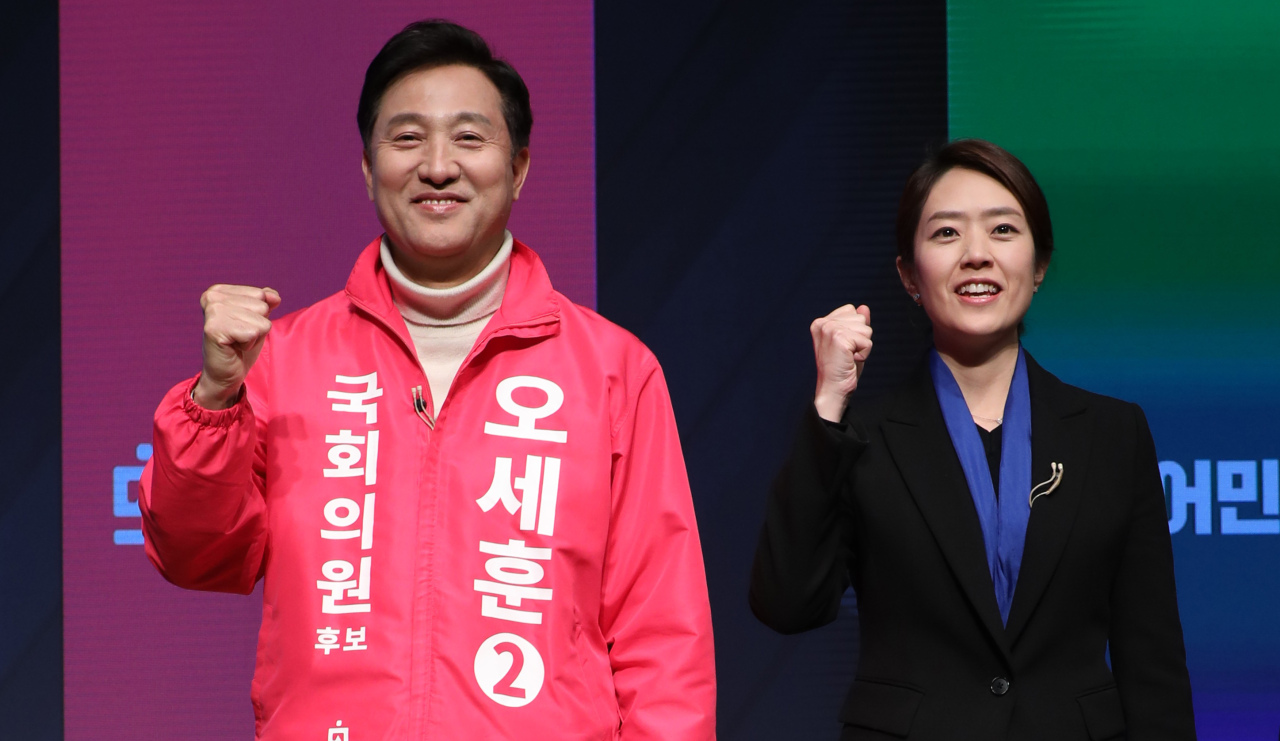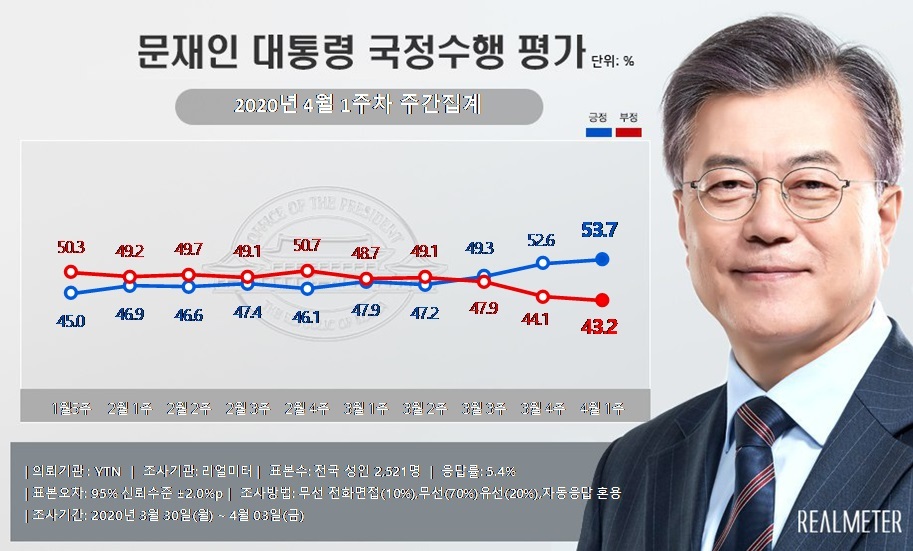
Rival candidates Oh Se-hoon (left) from the United Future Party and Ko Min-jung from the Democratic Party of Korea pose for photo before their debate in Seoul on April 3, 2020. (Yonhap)
Seoul, which is the largest metropolis in South Korea that comprises one-fifth of the country’s 50 million-strong population, is a key battleground in the April 15 parliamentary elections between liberals and conservatives.
The ruling Democratic Party of Korea said it has a clear lead in at least 33 out of 49 constituencies in the capital. The main opposition United Future Party projected it would secure 17 seats.
The governing party expects to pick up seats in its traditional liberal strongholds, areas north of the Han River, which cuts through Seoul from east to west. The United Future Party relies on its southern conservative strongholds – the more affluent districts of Gangnam, Seocho and neighboring constituencies.
One of the key battlefields in the capital is the symbolic Jongno district, where presidential hopefuls from the two rival parties will face off against each other: Lee Nak-yon from the ruling party and main opposition party Chairman Hwang Kyo-ahn.
Lee, a four-term legislator, served as prime minister in the Moon administration. Before that, he was governor of South Jeolla Province. Rival Hwang also served as prime minister under ex-President Park Geun-hye, and doubled as acting president when she was suspended from office upon her impeachment.
But Hwang has never held elected office or served in the parliament, a setback critics describe as casting doubts over his credentials for the district as well as presidential leadership. Polls show Hwang trailing Lee, but Hwang’s camp argue he is an underdog who could pull out a come-from-behind victory.
Liberal candidates are seen as outcompeting conservative rivals in key districts in the capital, which the main opposition United Future Party once considered easy wins.
Na Kyung-won, a four-term main opposition lawmaker, is struggling to steal a third victory against judge-turned-lawmaker Lee Su-jin of the ruling party in the Dongjak district. Na served for the district twice.

The poll shows President Moon’s weekly approval rating since the fifth week of January, 2020, with the latest rating standing at 53.7 in favor of Moon. Approval and disapproval rating are shown in blue and red, respectively. (Realmeter)
Oh Se-hoon, a former Seoul mayor elected twice on the conservative party’s ticket, has also found himself locked in a close match with Ko Min-jung, Moon’s former presidential spokesperson who is running for the first time on the ruling party’s ticket, in the Gwangjin district.
The liberal political newcomers have brought their fights close to even, thanks in part to President Moon’s rising approval ratings in recent weeks. The latest Realmeter poll released Monday shows Moon’s approval rating rose to its highest level in more than 17 months, owing to his handling of COVID-19.
Moon’s approval rating stood at 53.7 percent, while 43.2 percent disapproved of Moon’s government. More self-employed people and residents in the southeastern Gyeongsang provinces, which are usually traditional conservative strongholds, supported Moon this time, helping the rating to hike further.
The main opposition United Future Party has recently seen its approval rating slide, as some of its candidates have gone on to make slips of the tongue during the campaign. Observers speculate those kind of mistakes might have pushed moderates and the undecided altogether away from the United Future Party.
By Choi Si-young (
siyoungchoi@heraldcorp.com)







